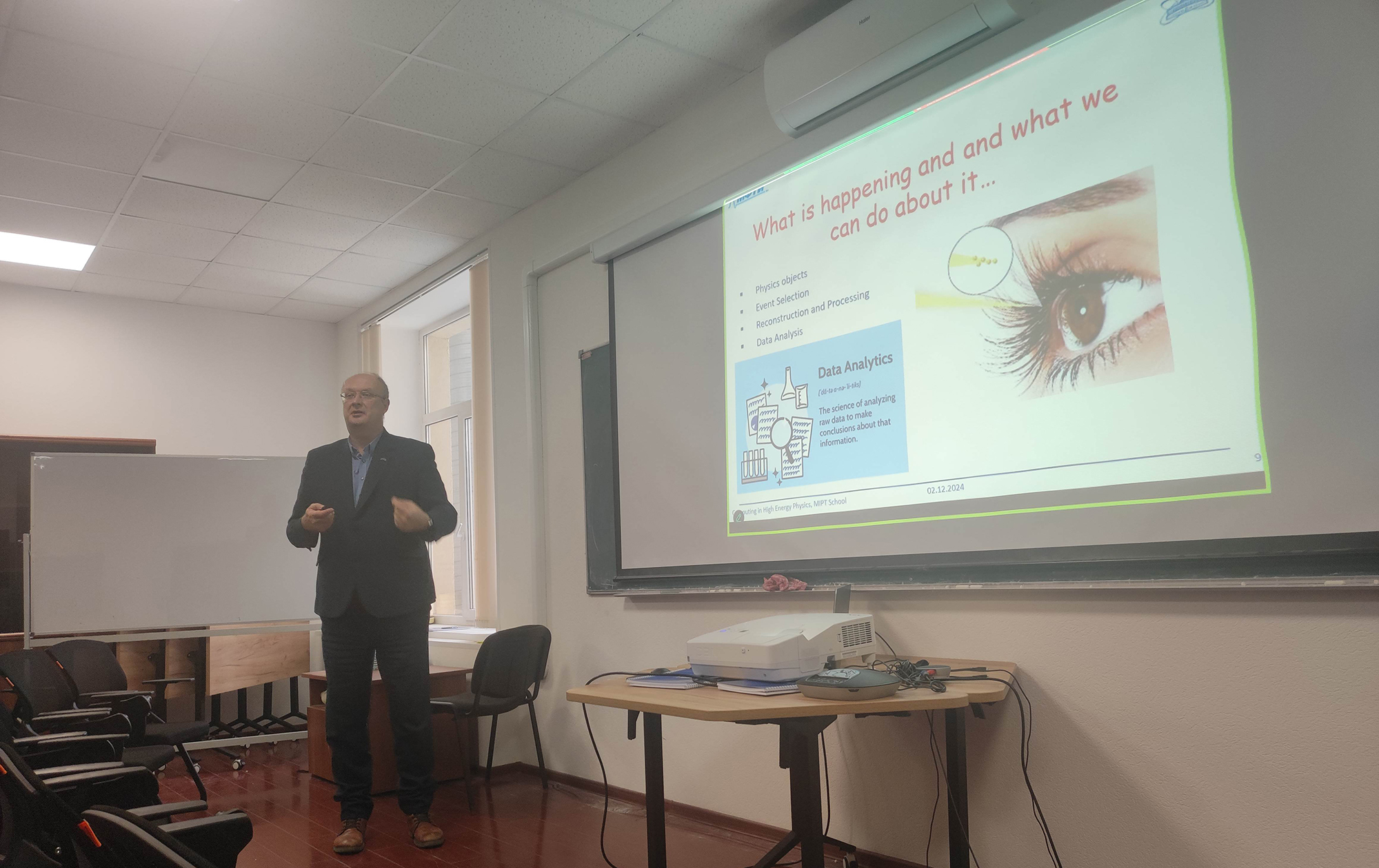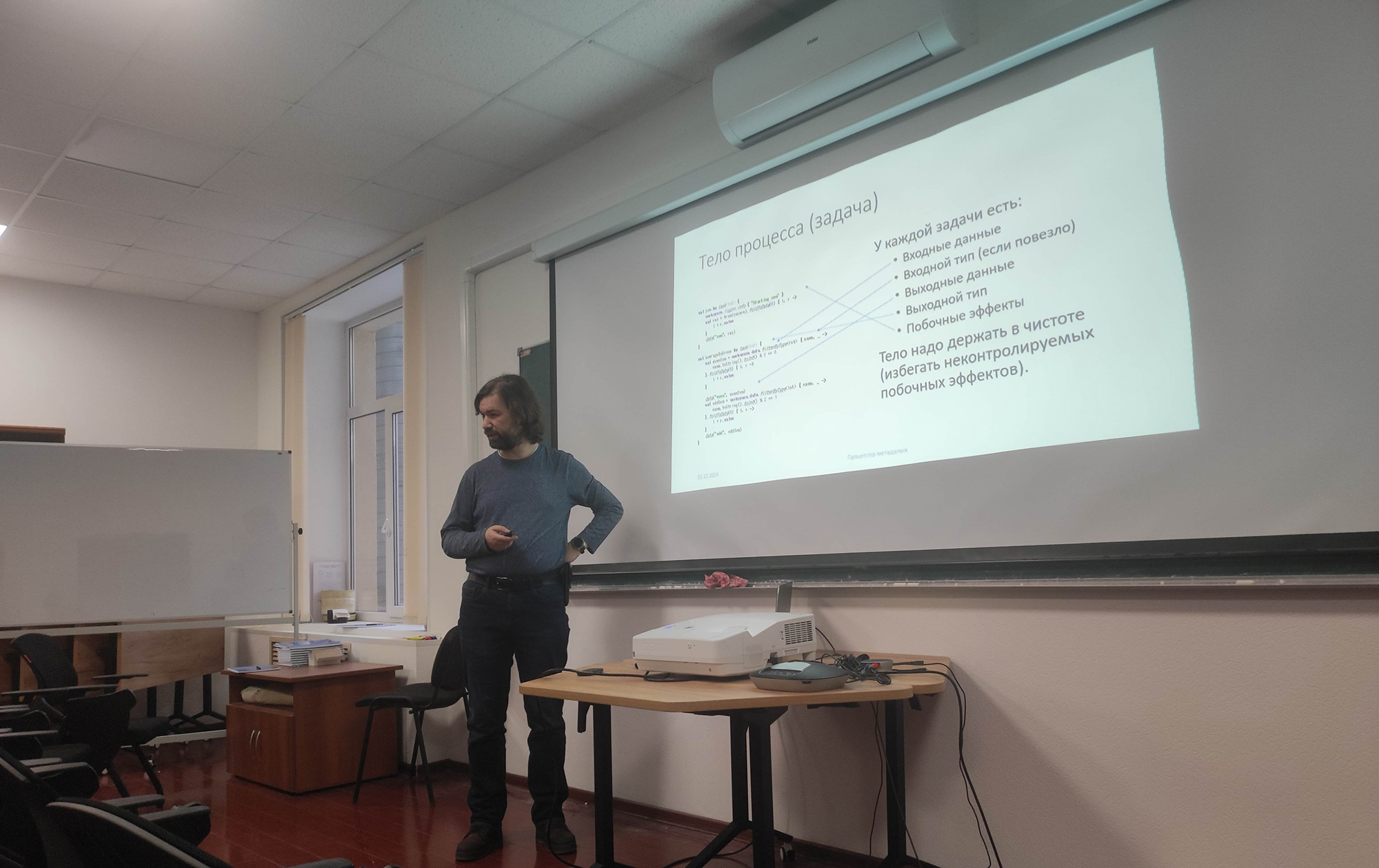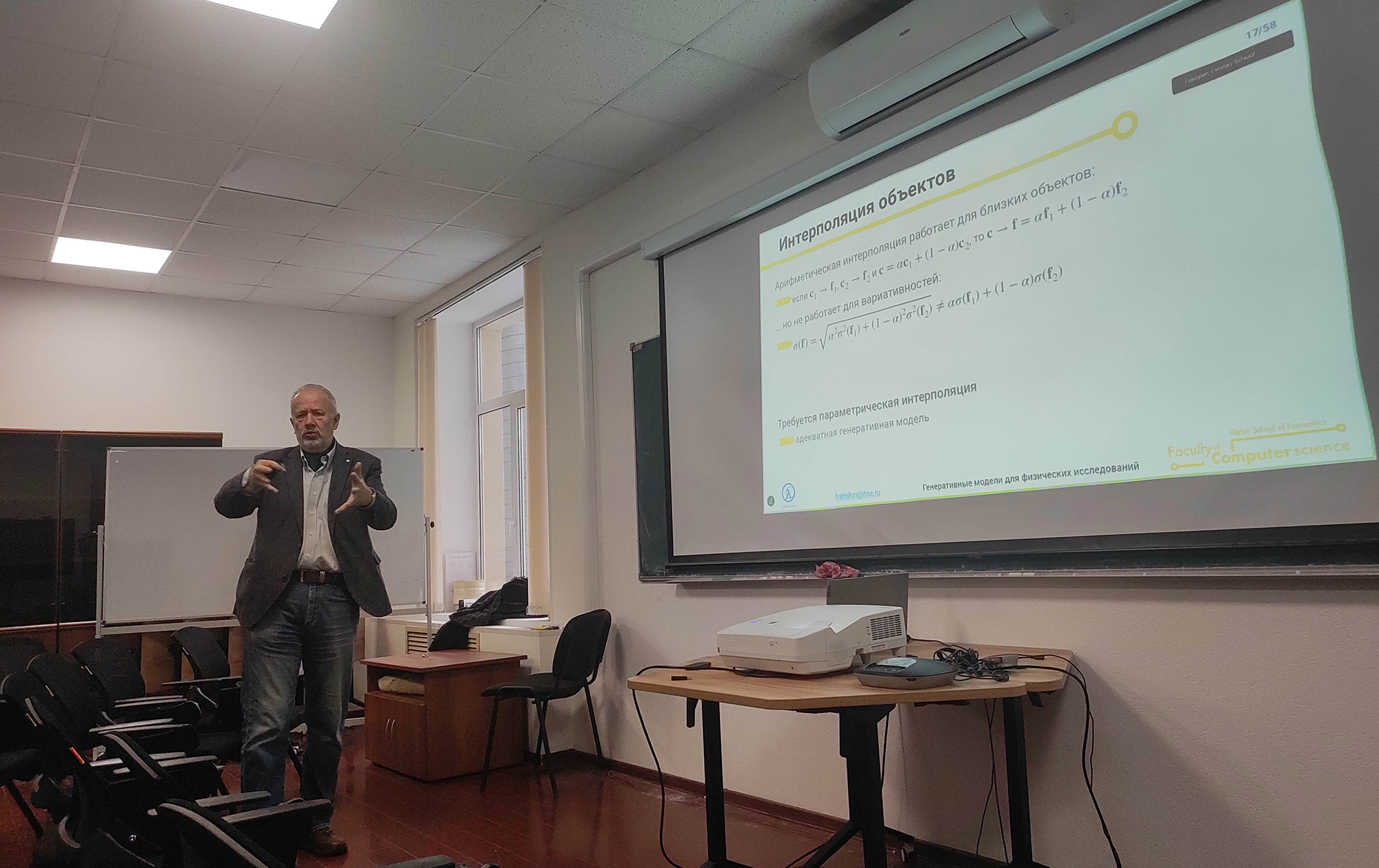Specifics of working with physics experiments’ data discussed at MIPT
News, 04 December 2024
On 2–4 December, the New Methods of Processing Data of Physical Experiments school and workshop is taking place at the Moscow Institute of Physics and Technology (MIPT). The event aims to combine the efforts of different teams of experimenters in developing new methods of processing large amounts of data. The organizers are MIPT and the Joint Institute for Nuclear Research.
The exponential growth of data volumes in fundamental physics experiments poses a serious challenge to modern science. This makes using new effective approaches to interpretation and physical analysis increasingly relevant. Machine learning and other advanced technologies are now becoming absolutely necessary tools to overcome these obstacles and achieve breakthrough results.
The talks given on the first day of the school highlighted key aspects of the development of computing technologies in high energy physics. Director of the Laboratory of Information Technologies (MLIT) at JINR Sergey Shmatov opened the event. He welcomed the participants on behalf of the Joint Institute and gave a lecture on why physicists need to understand computing and data processing methods using the example of experiments at the Large Hadron Collider (LHC) at CERN. In addition, he discussed MLIT’s plans to organize data collection and storage systems for the NICA Megascience Project under development at JINR.
The first day’s programme continued with a presentation by a junior researcher at the Scientific and Educational Laboratory for Methods of Big Data Analysis (LAMBDA) at the Higher School of Economics (HSE) Evgeny Kurbatov on examples of applying machine learning methods to some data selection and classification tasks in the BM@N and SPD Experiments. MIPT Scientific Programming Centre Director Alexander Nozik discussed topical issues related to organizing work with data and proposed practical solutions to speed up analysis and reduce the time spent debugging programs.
On 3 December, a LAMBDA leading researcher Fedor Ratnikov provided an overview of the main approaches to using generative neural networks to solve data processing tasks in high energy physics. A junior researcher at the HSE International Laboratory of Elementary Particle Physics (LEPP) Murad Yasaveev spoke about the use of the B-meson decay search algorithm based on ultra-precise neural networks. The presentation by a researcher at the Laboratory for Big Data Analysis in Particle Physics and Astrophysics of the Institute for Nuclear Research of the Russian Academy of Sciences (INR RAS) Ivan Kharuk devoted to the description of air showers in the Telescope Array Experiment and neutrino events at the Baikal-GVD Facility led to a lively discussion. The scientific programme of the second day ended with a talk by a MLIT JINR senior researcher Martin Bures on the use of quantum algorithms in reconstructing events in collider experiments.
On the last day of the seminar, the participants will hear severtal talks on the use of machine learning-based algorithms in calculating magnetic fields at accelerators and maintaining the required parameters of accelerated particle beams.
“An important part of the event is the daily discussion sessions devoted to the talks given during the day,” one of the organizers of the school and workshop, a VBLHEP JINR senior researcher Alexey Aparin said. “During them, the participants can continue to talk about the issues of interest to them that were raised during the lectures in a less formal setting. It is worth noting that many of the speakers are young scientists as well, which makes the discussions exceptionally friendly. We hope this will increase the students’ interest in working in megascience experiments and attract even more young people to physics”.
More than 80 specialists, postgraduates, and students from leading Russian scientific and educational organizations, including JINR, MIPT, HSE, INR RAS, and Saint Petersburg State University, took part in the work of the New Methods for Processing Data of Physical Experiments school and workshop. The event became a unique platform for active interaction and exchange of experience between scientists and young data specialists.


